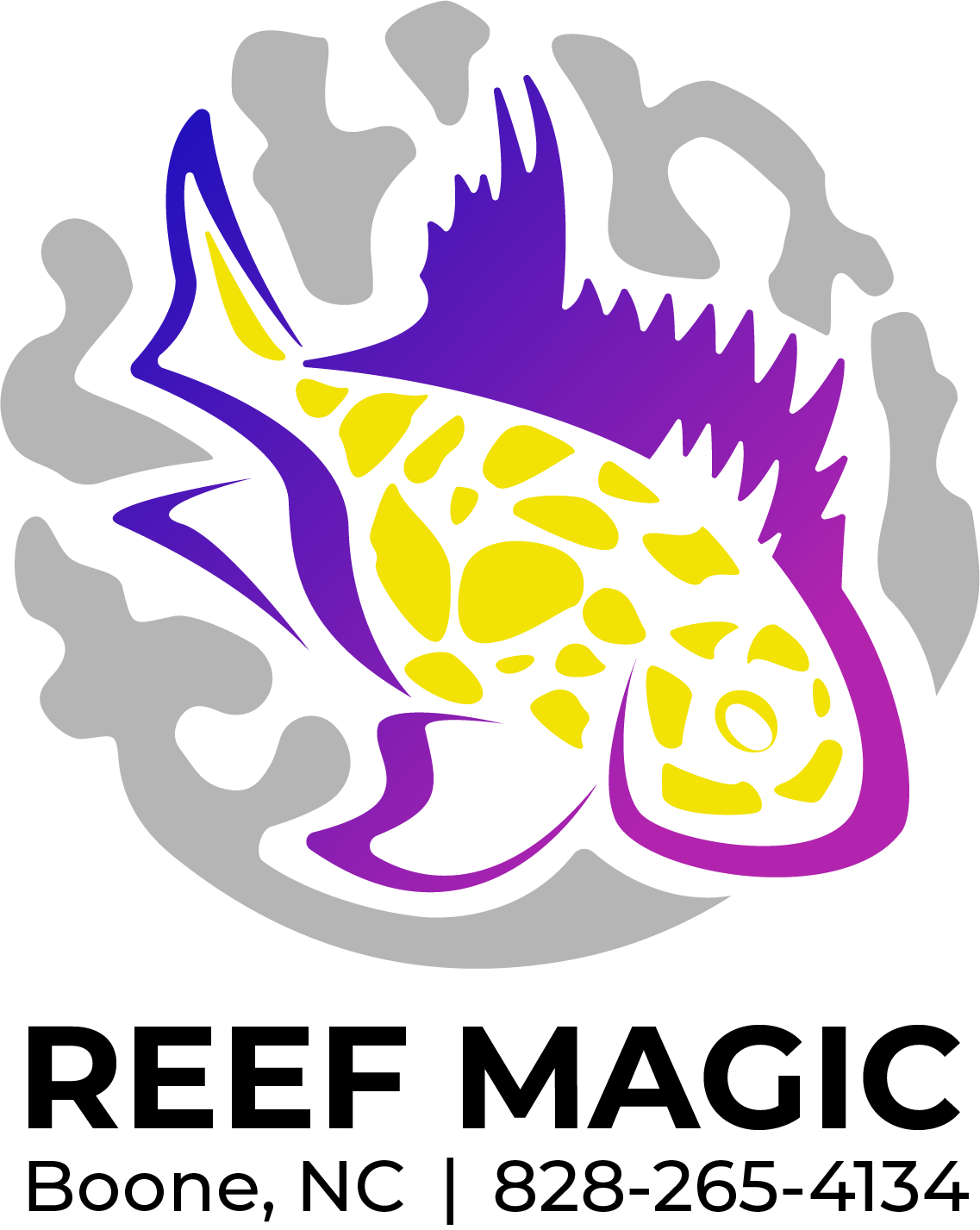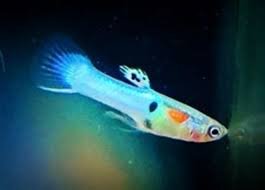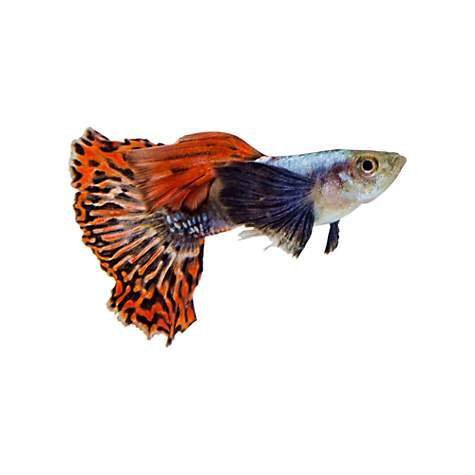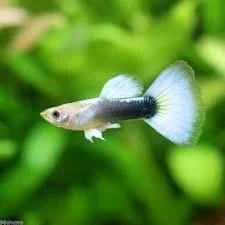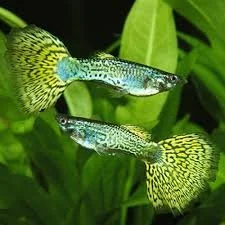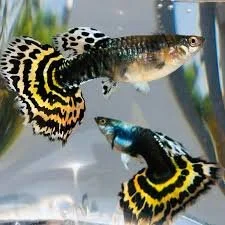 Image 1 of 1
Image 1 of 1


Guppy - Green Cobra
Here are the requirements for keeping guppies (Poecilia reticulata):
Aquarium size: Guppies are small fish and can be kept in tanks as small as 10 gallons (38 liters). However, a larger tank is always better for their overall well-being. Aim for a tank with a minimum capacity of 20 gallons (75 liters) to provide ample swimming space and accommodate a small group of guppies.
Water parameters: Guppies are adaptable to a range of water conditions. The ideal temperature range is around 72-82°F (22-28°C), pH between 6.8-7.8, and hardness between 8-12 dGH. Maintain stable water conditions and avoid extreme fluctuations.
Tank setup: Create a well-decorated tank with plenty of hiding places and open swimming space. Guppies appreciate live plants, such as Java moss or Amazon swords, which provide cover and areas for fry (baby guppies) to hide. Use rocks, driftwood, and other decorations to create a natural and visually appealing environment.
Filtration and water flow: Use a suitable filtration system to maintain good water quality. Guppies prefer gentle water flow, so adjust the filter output or use a sponge filter to reduce the current if necessary. Adequate filtration is important as guppies produce waste and are sensitive to poor water conditions.
Lighting: Provide moderate lighting conditions. Use a lighting system that mimics natural day and night cycles, with a photoperiod of around 8-10 hours of light per day. Guppies appreciate areas of shade created by floating plants or other decorations.
Diet: Offer a varied diet to ensure optimal nutrition. Guppies are omnivorous and can be fed high-quality flakes or pellets specifically formulated for tropical fish. Supplement their diet with occasional live or frozen foods such as brine shrimp, bloodworms, daphnia, or microworms to provide variety and enhance their coloration.
Tank mates: Guppies are generally peaceful and can be kept with a variety of community fish. However, avoid keeping them with aggressive or fin-nipping species that may stress or harm them. Good tank mates include other peaceful fish like tetras, corydoras catfish, and small peaceful species.
Breeding considerations: Guppies are prolific breeders, and if you wish to breed them, provide hiding places like dense plants or floating breeding traps to protect the fry from being eaten by adult fish. Separate pregnant females into a separate breeding tank if desired.
Here are the requirements for keeping guppies (Poecilia reticulata):
Aquarium size: Guppies are small fish and can be kept in tanks as small as 10 gallons (38 liters). However, a larger tank is always better for their overall well-being. Aim for a tank with a minimum capacity of 20 gallons (75 liters) to provide ample swimming space and accommodate a small group of guppies.
Water parameters: Guppies are adaptable to a range of water conditions. The ideal temperature range is around 72-82°F (22-28°C), pH between 6.8-7.8, and hardness between 8-12 dGH. Maintain stable water conditions and avoid extreme fluctuations.
Tank setup: Create a well-decorated tank with plenty of hiding places and open swimming space. Guppies appreciate live plants, such as Java moss or Amazon swords, which provide cover and areas for fry (baby guppies) to hide. Use rocks, driftwood, and other decorations to create a natural and visually appealing environment.
Filtration and water flow: Use a suitable filtration system to maintain good water quality. Guppies prefer gentle water flow, so adjust the filter output or use a sponge filter to reduce the current if necessary. Adequate filtration is important as guppies produce waste and are sensitive to poor water conditions.
Lighting: Provide moderate lighting conditions. Use a lighting system that mimics natural day and night cycles, with a photoperiod of around 8-10 hours of light per day. Guppies appreciate areas of shade created by floating plants or other decorations.
Diet: Offer a varied diet to ensure optimal nutrition. Guppies are omnivorous and can be fed high-quality flakes or pellets specifically formulated for tropical fish. Supplement their diet with occasional live or frozen foods such as brine shrimp, bloodworms, daphnia, or microworms to provide variety and enhance their coloration.
Tank mates: Guppies are generally peaceful and can be kept with a variety of community fish. However, avoid keeping them with aggressive or fin-nipping species that may stress or harm them. Good tank mates include other peaceful fish like tetras, corydoras catfish, and small peaceful species.
Breeding considerations: Guppies are prolific breeders, and if you wish to breed them, provide hiding places like dense plants or floating breeding traps to protect the fry from being eaten by adult fish. Separate pregnant females into a separate breeding tank if desired.
